Filter by

Migration and pandemics: spaces of solidarity and spaces of exception
This open access book discusses the socio-political context of the COVID-19 crisis and questions the management of the pandemic emergency with special reference to how this affected the governance of migration and asylum. The book offers critical insights on the impact of the pandemic on migrant workers in different world regions including North America, Europe and Asia. The book addresses seve…
- Edition
- -
- ISBN/ISSN
- 9783030812102
- Collation
- xxii, 248 p. : ill.
- Series Title
- IMISCOE Research Series
- Call Number
- 614.592414 TRI m
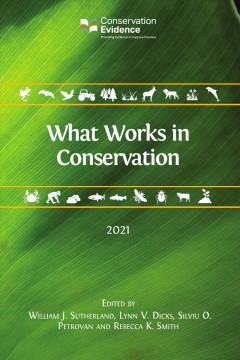
What works in conservation 2021
Does the creation of artificial reefs benefit subtidal benthic invertebrates? Is the use of organic farming instead of conventional farming beneficial to bat conservation? Does installing wildlife warning reflectors along roads benefit mammal conservation? Does the installation of exclusion and/or escape devices on fishing nets benefit marine and freshwater mammal conservation? What Works…
- Edition
- -
- ISBN/ISSN
- 9781800642744
- Collation
- 961 p. : ill. ; 24 cm
- Series Title
- -
- Call Number
- 333.9516 WHA w
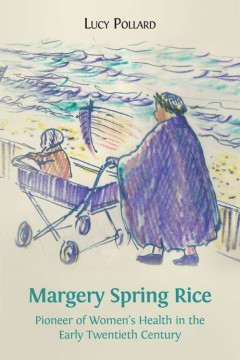
Margery spring rice: pioneer of women’s health in the early twentieth century
This book vividly presents the story of Margery Spring Rice, an instrumental figure in the movements of women’s health and family planning in the first half of the twentieth century. Margery Spring Rice, née Garrett, was born into a family of formidable female trailblazers – niece of physician and suffragist Elizabeth Garrett Anderson, and of Millicent Fawcett, a leading suffragist and cam…
- Edition
- -
- ISBN/ISSN
- 9781783748839
- Collation
- xiv, 196 p. : ill. : ind. ; 24 cm
- Series Title
- -
- Call Number
- 305.42092 POL m
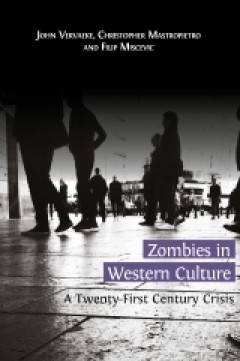
Zombies in western culture: a twenty-first century crisis
Why has the zombie become such a pervasive figure in twenty-first-century popular culture? John Vervaeke, Christopher Mastropietro and Filip Miscevic seek to answer this question by arguing that particular aspects of the zombie, common to a variety of media forms, reflect a crisis in modern Western culture. The authors examine the essential features of the zombie, including mindlessness, ugl…
- Edition
- -
- ISBN/ISSN
- 9781783743308
- Collation
- viii, 93 p. : ill. : ind. ; 24 cm
- Series Title
- -
- Call Number
- 398.21 VER z
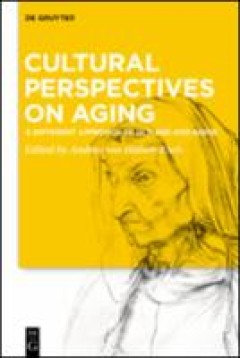
Cultural perspectives on aging : a different approach to old age and aging
The societal significance of old age and ageing are increasing due to demographic developments. Age(ing) is not only a biological and social fact, but also a cultural one. This book reveals the importance of cultural factors in order to build a framework for analyzing and understanding cultural constructions of ageing, bringing together scholarly discourses from the arts and humanities as well …
- Edition
- 3
- ISBN/ISSN
- 9783110683042
- Collation
- 172 p. : ill.
- Series Title
- -
- Call Number
- 900 HUL c

The idea of Europe: enlightenment perspectives
In view of the challenges—many of which are political—that different European countries are currently facing, scholars who work on the eighteenth century have compiled this anthology which includes earlier recognitions of common values and past considerations of questions which often remain pertinent nowadays. During the Enlightenment, many men and women of letters envisaged the continent�…
- Edition
- -
- ISBN/ISSN
- 9781783743803
- Collation
- 163 p. : ill. : ind. ; 24 cm
- Series Title
- -
- Call Number
- 940.2 IDE i

Warlike and peaceful societies : the interaction of genes and culture
Read Agner Fog's introductory post on our blog [...] it presents a valuable overview of the extensive literature on the societal correlates of modern warfare and makes a convincing, and timely, case for the deceptive use of the threat of war by populists or budding dictators. — Carel P. van Schaik, University of Zurich, Adaptive Behaviour (May 2018) https://doi.org/10.1177/105971231877197…
- Edition
- -
- ISBN/ISSN
- 9781783744053
- Collation
- 364p.: colour, ill.
- Series Title
- -
- Call Number
- 303.4 WAR f
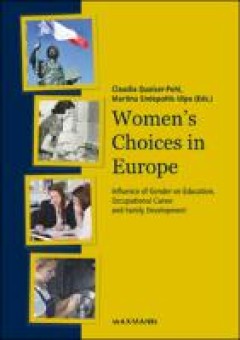
Women's choices in Europe : influence of gender on education, occupational ca…
The options women have to shape their lives have dramatically increased in the last decades, and this is true for all European countries. Changes in their societies with respect to women’s rights have been fundamental, amongst other things as a result of the women’s movement, which caused one of the greatest social revolutions of the 20th century. But considering the different starting poin…
- Edition
- -
- ISBN/ISSN
- 9783830977438
- Collation
- vi, 229 p. : ill
- Series Title
- -
- Call Number
- 305.4094 QUA w
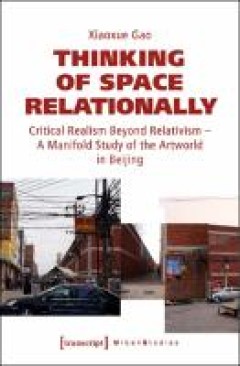
Thinking of Space Relationally : Critical Realism Beyond Relativism - A Manif…
Since the relational turn, scholars have combated methodological universalism, nationalism, and individualism in researching social-spatial transformations. Yet, when leaving the gaps between the traveling and local epistemic assumptions unattended, engaging relational spatial theories in empirical research may still reproduce established theoretical claims. Following the sociology of knowledge…
- Edition
- 8
- ISBN/ISSN
- 9783839455876
- Collation
- 282 p, ill.
- Series Title
- -
- Call Number
- 709.5115 GAO t
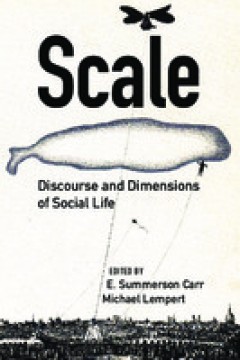
Scale : discourse and dimensions of social life
"Wherever we turn, we see diverse things scaled for us, from cities to economies, from history to love. We know scale by many names and through many familiar antinomies: local and global, micro and macro events. Even the most critical among us often proceed with our analysis as if such scales were the ready-made platforms of social life, rather than asking how, why, and to what effect are scala…
- Edition
- 15
- ISBN/ISSN
- 9780520965430
- Collation
- xi, 277 p. : ill.
- Series Title
- -
- Call Number
- 300.72 LEM s
 Computer Science, Information & General Works
Computer Science, Information & General Works  Philosophy & Psychology
Philosophy & Psychology  Religion
Religion  Social Sciences
Social Sciences  Language
Language  Pure Science
Pure Science  Applied Sciences
Applied Sciences  Art & Recreation
Art & Recreation  Literature
Literature  History & Geography
History & Geography